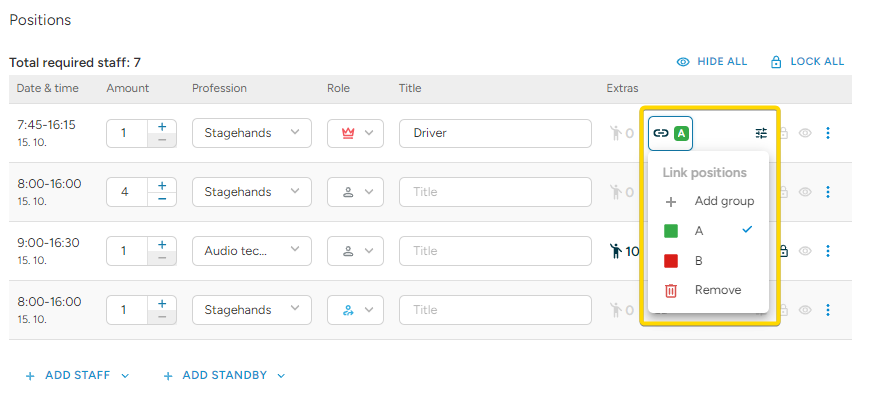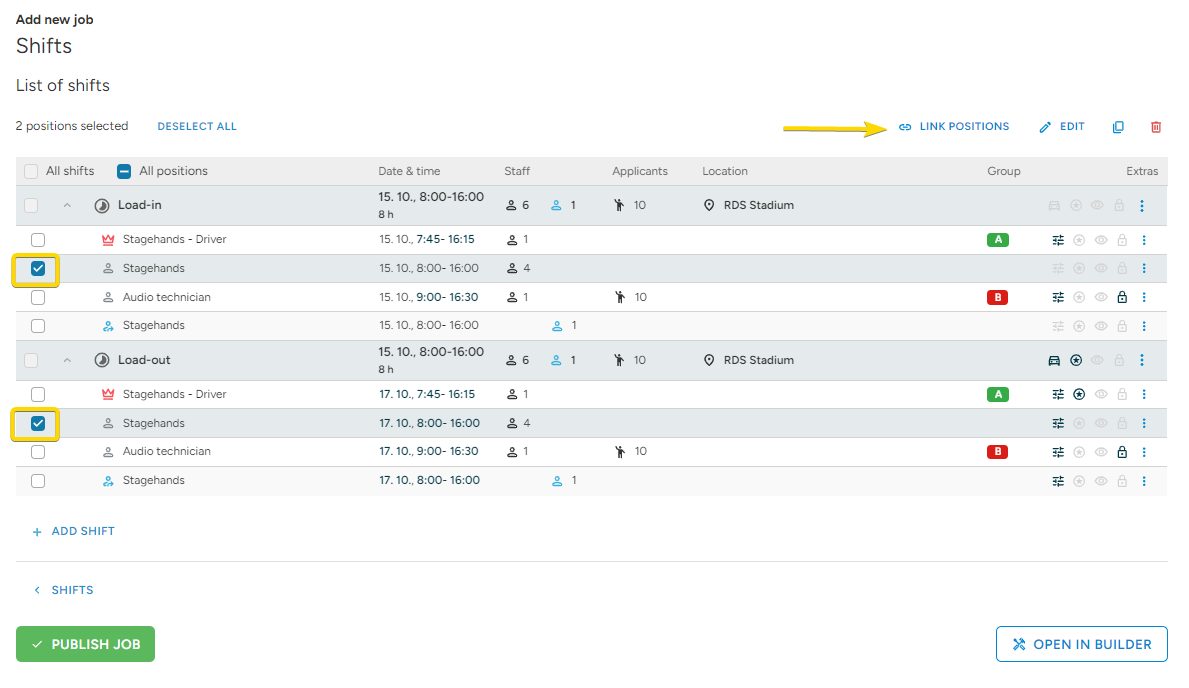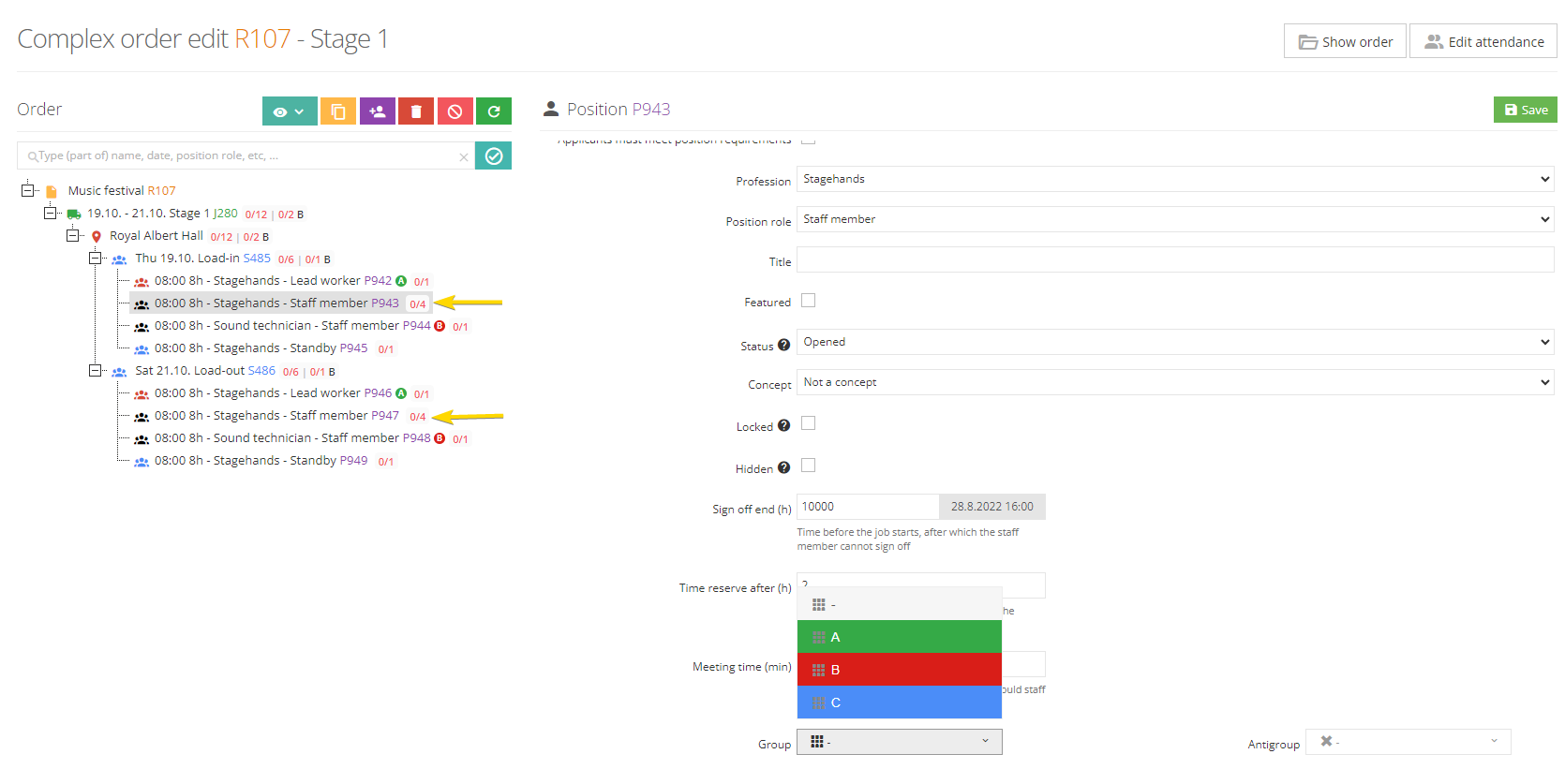Linking shifts into groups
Linking positions on the shifts into groups will help you to easily manage your team of staff members.
Sometimes you might want to have the same people working on more shifts within the job to ensure the smoothness and quality of the work. For instance, you want the same team to do the load-in of the stage as well as the load-out; or you have two weekend shifts out of town and you want the same team there for both dates.
This can be easily done with our feature of linking (grouping) positions on the shifts. If the positions are grouped together, staff members can sign up only for all the linked shifts or none. The same applies to signing out of the shifts.
Linked positions are represented by ⛓️chain symbol and group name (A, B,..)
Linking positions into groups
You can link the positions when adding a new job to the system via a new job form or when adding new or editing existing shifts using the builder editor.
1. In new job form
Add or remove the position grouping in the Positions part by clicking on the chain symbol in line with the position you want to link:

The system will automatically offer you the first letter A for the first group, B for the second, etc.
💡Tip: Link the positions right when creating the first shift. Newly added shifts in this form will have positions copied along with the linked groups.
You can link or unlink the positions also in the overview part by selecting the desired positions.
In the example below our lead workers (group A) and audio technicians (group B) are linked:

2. In builder editor
You can always link or unlink the positions in the builder.
- In a bulk
- select the respective line positions you want to link together by holding the CTRL tab and clicking on positions. Click on the chain symbol to link/unlink positions or set/remove antigroup.

- One by one or adding positions to the existing group
- In the builder tree click on the line of respective position → in the first tab position → scroll to the bottom to the group selection dropdown.

The colored letter at each position line indicates that the position is grouped.
💡Don't forget, you are linking the individual positions, not the shift as a whole.
Self-registration to linked positions
Grouped positions are marked with ⛓️chain symbol in staff member's account too. They can see it right away from the list of available shifts and in the shift detail.
They will see that the shifts are grouped along with information about the other shifts from the group. If they sign up for the shift, the system will automatically sign them up for all the other grouped shifts. This applies when signing up for an open shift as well as signing up for a locked shift as an applicant.
Shifts will appear in the MyAgenda section and there is no other action needed from the staff member.

The same applies when they are signing out of the shift - signing out of one shift that is part of the group will automatically sign out staff member from all linked shifts.
Allocating staff to grouped shifts by admin
When admins manually add staff members to the shift, groups can be reflected too - when adding a staff member to one position that is linked with other position(s) you can decide to allocate this person to all grouped positions or not:

💡Tip: when positions are linked to groups you can approve or decline applicants for all positions within the group at once. This can be done on the shift page or in the attendance builder.
Antigroup
When two or more shifts shouldn't be attended by the same staff member, they can be marked as antigroup to make sure that the staff member is not able to sign up for grouped and antigrouped positions at the same time. Antigroups are marked with the Greek alphabet.
Example: You have two shifts with one position, and you want to ensure that a staff member will attend only one or the other shift, but not both. You put these two positions into an antigroup, and a staff member will be able to sign up for only one shift.

